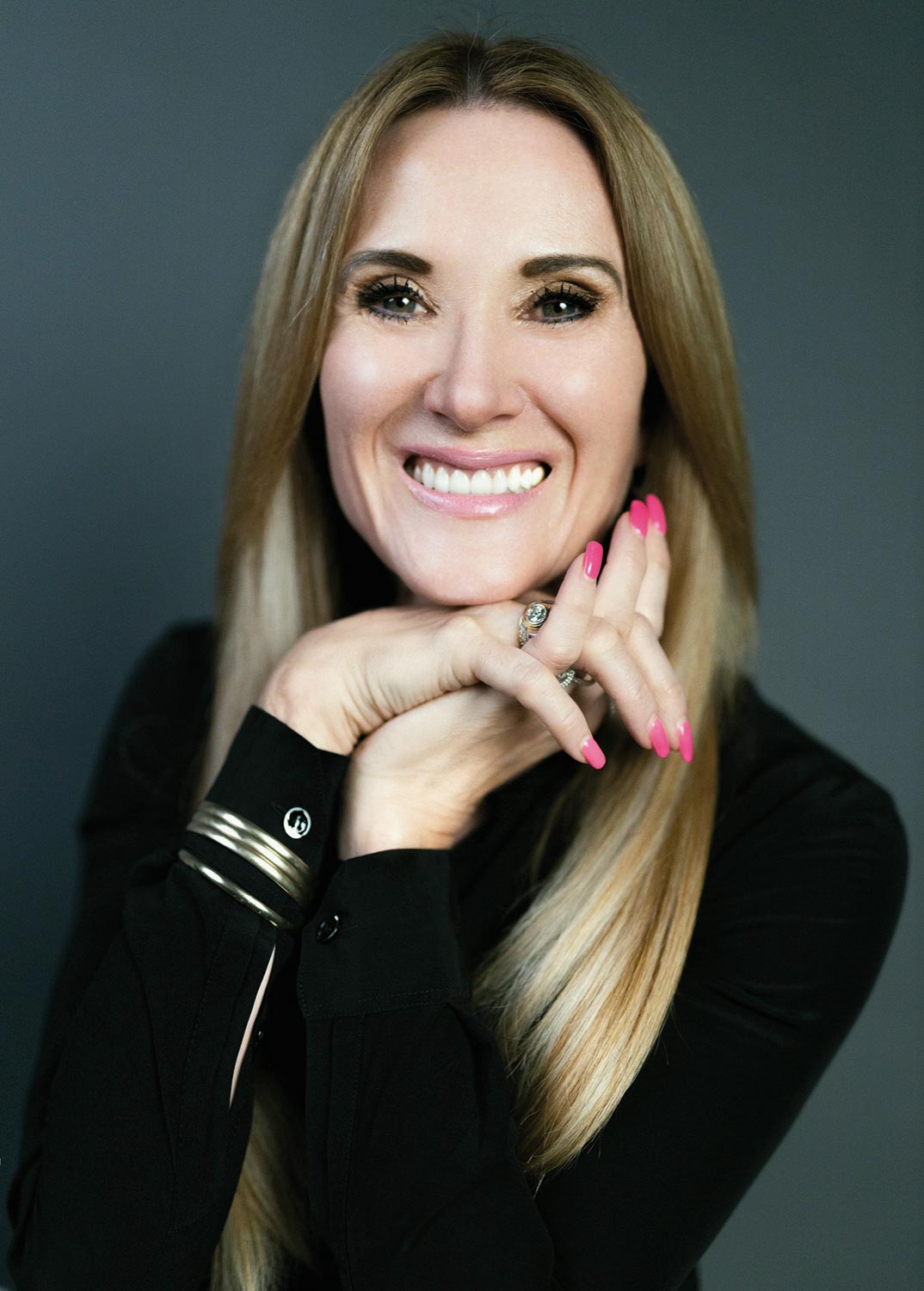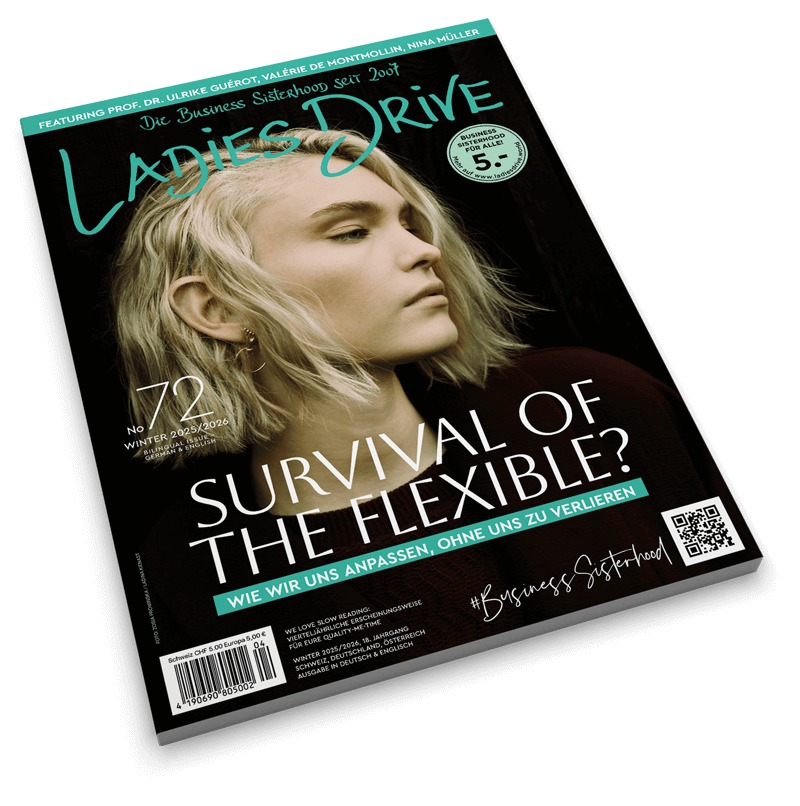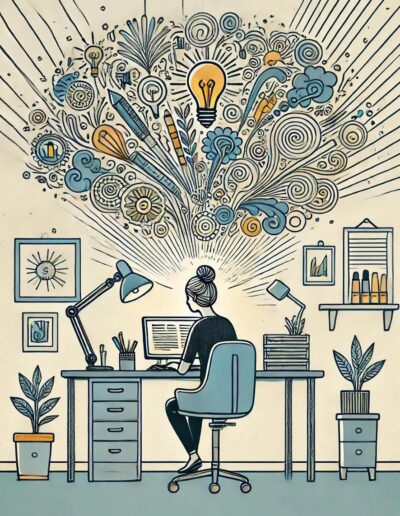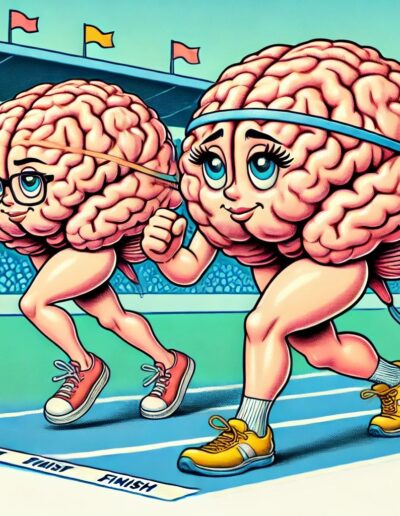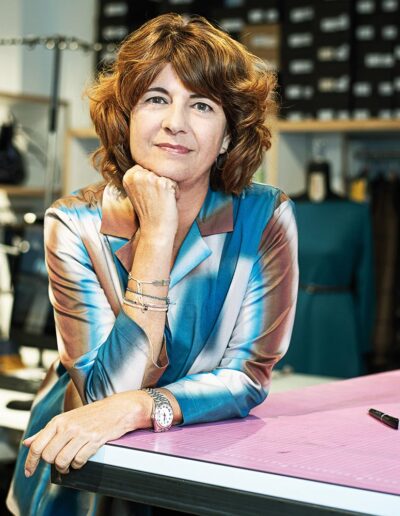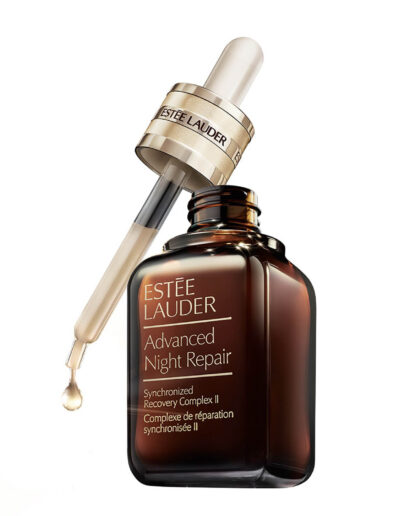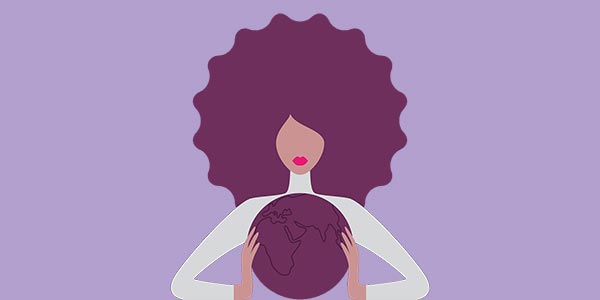She has published 19 bestselling books in 24 languages, has over 50 million downloads on her award-winning podcast, Up Your Mental Mess, and over nine million downloads on YouTube. She runs research trials in mental health and publishes in scientific journals. She speaks to diverse audiences around the world including neuroscience and medical conferences and TEDx.
Since the early 1980s she has researched the mind-brain connection, the nature of mental health, and the formation of memory. She was one of the first in her field to study how the brain can change with directed mind input, which is called neuroplasticity. She developed her theory, called the Geodesic Information Processing theory, of how we think, build memory and learn. This theory offers tools and processes that have transformed the lives of hundreds of thousands of individuals with traumatic brain injury (TBI), chronic traumatic encephalopathy (CTE), learning disabilities (ADD, ADHD), autism, dementias and mental ill-health issues like anxiety and depression.
In today’s fast-paced world, where change and uncertainty have become the norm, a silent mental health crisis is unfolding. Anxiety, stress and depression are not just rising; they are reaching all-time global highs, prompting an urgent need for accessible, scalable and affordable mental health support. Founded on the groundbreaking research of Dr Caroline Leaf, NeuroCycle offers an evidence-based solution demonstrating an 81% improvement in managing the symptoms of anxiety and depression. NeuroCycle is not just an app – it is, and has been, a revolution in mental health management. As a scientifically backed five-step process, it offers a practical, accessible and effective way of empowering individuals to reclaim control over their mental well-being for the long term.
Our keynote speaker for the League of Leading Ladies Conference 2025 will be sharing how you can use NeuroCycle to direct neuroplasticity and will also debunk some of the brain hacking promises that you see on social media these days.
Ladies Drive: What is the scent of your childhood?
Caroline Leaf: Roses.
Why roses?
Because my mother loved roses and I grew up loving roses and she had lots of them. She was an incredible gardener. So that’s always been my favourite scent.
What does that scent trigger in you?
Oh, a lot of happiness and peace and joy.
Give us an idea of your childhood and upbringing.
I had three siblings. I was the youngest of four. And my Dad was a very high-powered businessman and travelled a lot – he was very intelligent and taught us a work ethic but was also very loving. He had grown up in an environment where he didn’t get much touch. So he didn’t know how to hug us, but he was always so much fun. My mother had a little shop. My siblings and I were very close. It was a fun time growing up with a big family. I was born in Zimbabwe. And my parents moved to South Africa where I grew up.
What drives you?
At the age of nine, I was already fascinated with the mind and how we think and function and would teach my dolls about the brain and the mind. I would pretend I was a neurosurgeon as well. That was from very young. And that never changed. I got into medicine and changed over to a new degree that had been introduced, which was a combination of medicine, psychology and communication pathology. We were trained, with extensive clinical experience including anatomical dissections alongside psychology, communication pathology and a lot of other subjects and areas. It was very tough – we had to go to university and clinic seven days a week. But I’m very grateful for that because it brought me to where I am today.
If you look at YouTube and you look for biohacking, neuroscience, brain hacks – you will find tons of videos. What are the major misunderstandings about the brain?
Biohacking is looking at how we can use devices and exercises, add supplements and technology in order to hack, and to improve your physical and mental wellbeing. There are obvious benefits, however, your mind is the primary source and therefore mind management is the most important “hack”.
What is neuroplasticity?
Neuroplasticity is the ability we have as humans to change our messy mind, brain and body with our wise minds. In other words, we can rewire our mind-brain-body networks. In the 80s it was believed that the brain couldn’t change. Once we had more advanced brain technology from the mid 90s this changed and
now we know that the brain and body are changing all day long, directed by our mind, and if our mind is messy, these changes are messy; if our mind is managed, these changes can be “cleaned up”. The most important thing to know about your brain is this: your mind uses the brain. The brain is a filter. So, what you do with your mind will change the brain and the body. This is the research that I’ve been involved in for the last 40 years. It’s not the brain controlling you. That’s the key thing here. Pure mind work is hard. People love shortcuts and trendy hashtags. Lots of people think it’s easier to take a supplement. Or wear a device. Essentially, it’s all about your mind and how you’re managing your mind. That is not as sexy or trendy as: do this little trick and then you’ll be brilliant. No, it doesn’t quite work like that.
So, what is consciousness?
That’s one of the areas that I’ve researched extensively. I have studied in the field of nonconscious, subconscious and the conscious. Your conscious mind is when you’re awake. Your subconscious is a bridge and the nonconscious is the biggest most intelligent part of us that operates 24/7. That’s where all our memories are stored. It’s what drives you. It enables you to absorb life and all experiences and also helps to find what is good and not good for you and pushes that through the subconscious to the conscious mind. And then we consciously choose to listen, or not listen, to these messages. That’s free will.
What is the mini-brain in the heart? Please tell us more about it and the connection between the heart and the brain. What do we know about it?
The brain has been considered as being the main place for cognition and storing memories. But it’s not.
The brain is a filter and responder to the mind and stores a certain version of our experience. Your body stores other versions. For example, our heart has about 45,000 neurons that play a role in thinking; there is also the gut brain. So, the mind is embodied. It’s throughout your whole body. It’s a network. In the brain we have a certain type of storage of information and then the heart is like a check-in station. Every cell in our brain and body has the structure to store information. It clusters together in the brain for one type of storage and in the heart is another type of storage. And so on, all having different perspectives. And it all networks together. This is what psychoneurobiology is. It’s this full network of the entire mind, brain and body, which is what, when we are toxically stressed, for example, we feel in our body and mind. We demonstrated in our research how our mind even influences our chromosomes in nine-week cycles. We generate electromagnetic energy when we’re alive. We have this energy through our entire body. When a person’s dead that pretty much goes. As soon as that goes the heart stops beating, the brain stops working, and everything shuts down. That’s classic physics, that’s not anything weird. And our mind keeps the network connected.
And we’re cyclical beings. That’s also something that we shouldn’t forget …
I totally agree. Everything’s cyclical about the body – the biochemistry, the neurobiology. The cyclical nature of our brain and our biology and the mind-brain-body connection, it’s all these cycles of tension release. Let’s take the stress axes. Everyone thinks stress is bad. But stress is really good for us. We’re operating in the cycles of tension release. When we’re alert we manage the cycles. But for sure, it’s important to be aware of this cycle and keep it in balance.
So, what do we know about the brain of successful people, of makers?
The question is what is the definition of success and thriving. Someone who’s at peace? Someone who’s helping other people? You may be very wealthy and successful but very unhappy. We need to look from the inside out. How can I change, and how can I grow? The ability to listen to others, to hear, to have empathy, to see other people’s perspectives. I’ve come across some incredibly wise people. The people that are the wisest are the kindest. The gentlest. You don’t need to agree with everything, but they can hear and respect and honour others. This is what I’m striving for.
Operating in love would be the biggest definition of success for me.
I’m in menopause. I have hot flushes, brain fog and I wonder: what the heck is going on in my brain?
Oh, that’s such a challenge for women, but this is the cyclical nature of life. The natural way how our hormones decline and shift is necessary and normal. And in a perfect environment where we don’t have chemicals and pollution we would not suffer as much as we do, which is why things like bioidentical hormone replacement therapy and watching one’s diet is important in menopause. We’re not preparing women enough in this world for menopause. It’s seen as something bad. But it’s not, it’s something beautiful. Any transition is hard, like giving birth to a child. Any healing is painful. Once the transition is done, it’s beautiful on the other side. There are a lot of reasons why your hormones can be disrupted – processed food full of chemicals being a definite culprit. A lot of symptoms we see in women today are related to environment. The other side is that we don’t spend enough time in managing our mind. We need to teach other women, our daughters, sisters, more about all of those changes that women go through. This is how we can embrace it. And there are many ways how we can transit through such a period – we don’t have to suffer. But I cannot stress how important that is that we learn to manage our mind, because managing our mind on an ongoing basis keeps our mind-brain-body network healthy. It’s not going away but it makes every transition much smoother.
So let us know, how do you manage your mind and what’s your number one tip for us?
I’m 61. I’ve done the whole menopause thing and I had four kids, I run a business, I’m busy, so my number one tip is a system that I developed and that I call NeuroCycle. It’s a system to drive neuroplasticity. I use it every day. I still get sad or depressed, that’s part of life. I embrace every emotion as part of what I’m going through. I don’t try to suppress it. I embrace it, I persist and I reconceptualise it, that’s the key to being able to move forward. Life is a hero’s journey. If you’ve been through a traumatic event, understanding that this keeps you stuck, keeps you revolving opposed to evolving.
Can you share a simple exercise we all could do?
Sure, there are many. Let’s say you have an unexpected challenge. Let’s say you’re in a meeting and there’s someone in the meeting who is quite toxic and this person says something that throws you off but you need to keep your head together. Or someone triggers you again and again. This information comes at you in the form of electromagnetic energy, light energy, sound waves, it comes into your mind and you process that. And then it immediately filters into your brain and body building networks (neuroplasticity). Using NeuroCycle, you can manage your mind to manage the impact of life. You can capture it while it is happening and redirect it. You can protect yourself.
So, here’s the exercise:
As soon something like that happens,
STEP 1 of NeuroCycle is to gather awareness of:
Emotion. Say: this is making me angry. That’s a quick sentence in your mind.
Bodily sensation. That’s making my heart flutter.
Behaviour. I see that my face is changing.
And then be aware of your perspective like: oh no, they’re doing it again. Or: oh, I can’t stand this person.
STEP 2 reflect about the why. Why am I reacting? Maybe because I think it’s unfair what they say.
STEP 3 is to visualise and let your thoughts flow freely.
STEP 4 is to recheck asking yourself “this has happened, what can I do right now?”
STEP 5 is to create an action you can do to help you put this into practice, like saying to yourself “I can do this, I am worthy.”
When I come to the League of Leading Ladies Conference 2025 I’m going to teach you more about it.
So you’re never triggered?
Oh, I often am! But I know how to handle it. What is always the hardest is with your own family.
I just wanted to say, I can take any criticism from anybody – except when it comes from someone I love.
Exactly. There you go. And that’s the hardest thing. So there’ll be a moment of irritation, but it will be less and less.
More information about Dr Caroline Leaf
Social media handles: drcarolineleaf
Podcast: Cleaning Up Your Mental Mess
More about her keynote at the League of Leading Ladies Conference 2025:

